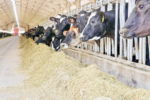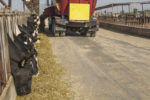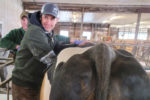Feed Ingredients
Liver biopsies: A cow’s mineral gauge
Liver biopsies are a quick and efficient way of noting a cow’s trace mineral status.
Read More
Feed additives: The next frontier of the dairy industry’s sustainability journey
Feed additives can have a major impact on methane emissions. It’s not easy to incorporate to ensure consistent reductions while maintaining cow health and production, but it’s worth the effort.
Read More
The role of phytochemicals during the transition period
How plants – more specifically phytochemicals – can help our heifers and cows conquer that daunting transition period and come out on top.
Read More
Maximizing forage quality: Key considerations for successful ensiling
By embracing the best practices in inoculant use and management, you can lay the foundation for sustained forage quality and herd productivity for years to come.
Read More
Simplifying the feeding program: Steps toward improved efficiency
As every farm strives for greater production efficiency and lower costs, it makes sense periodically to evaluate what is being fed, especially in the premix.
Read More
The perfect marriage: Oral plus injectable trace minerals
The transition period can be stressful and is generally accompanied by an increased demand for trace minerals for fetal growth, colostrum/milk production and to support a challenged immune system.
Read More
Butterfat 101: There’s more to it than nutrition
Several key nutrients to optimize maximum butterfat production and how your attitude can drive it.
Read More






